Transcription of The Ten Essential Shared Capabilities Supporting …
1 The Ten Essential Shared CapabilitiesSupporting person-centred approachesA learning resource for health care staffIntroduction to the ResourceContents NHS Education for Scotland 2012. You can copy or reproduce the information in this document for use within NHSS-cotland and for non-commercial educational purposes. Use of this document for commercial purposes is permitted only with the written permission of would like to thank the members of the working group who have contributed to the development of the Dorothy Armstrong Programme Director NHS Education for Scotland Clinical Nursing Adviser Scottish Public Services OmbudsmanDr Maggie Grundy Programme Director NHS Education for ScotlandKristi Long Equality & Diversity Adviser NHS Education for ScotlandAudrey Taylor Education Projects Manager NHS Education for ScotlandEditorsSusanne Forrest Programme Director.
2 NHS Education for ScotlandAlex Mathieson Freelance Writer and Editor The learning resource is based on work originally taken forward in England to develop the 10 Essential Capabilities for Mental Health learning materials [ ]. We developed the resource for mental health workers in Scotland and have now done so for a wider audience. Our thanks go to the original authors of the materials underpinning this resource, particularly to Ian McGonagle, University of work undertaken in NHS Lothian informed the development of the learning resource. We would particularly like to acknowledge the contribution of Juliet would also like to acknowledge the contribution of the working groups and authors who developed the 2008 and 2011 versions of the 10 Essential Shared Capabilities for Mental Health Practice (Scotland) in shaping this wider educational resource [ ].
3 The Making a difference: a challenge in the workplace form at the end of the learning resource was developed by Paul Smith, Clinical Nurse Educator, NHS to the Ten Essential Shared Capabilities (10 ESCs) Learning Resource (Scotland).The 10 ESCs training and learning has been widely disseminated in Scotland, particularly among mental health nurses as a result of Rights, Relationships and Recovery: the report of the national review of mental health nursing in Scotland [ ]1 Thousands of mental health nurses have now completed the training. This version of the learning resource builds on the successes of the original mental health learning resource. It has been informed by findings from the evaluation of that resource and has been updated to reflect the evolving policy and legislative context driving improvements in health and social services in Scotland, and the increasing influence of values- and rights-based main emphasis of the learning resource is to support cultural change in services (alongside a number of initiatives we will discuss later) by promoting person-centred, rights-based and values-focused practice.
4 The resource has been designed to meet the learning needs of a wide range of people working in adult health and social services. A version focusing on meeting the needs of children, young people and families is also being developed. The resource is action focused, as we believe there is little value in learning that does not translate into developing better services for people and their families and carers. To that end, the activities that appear throughout each of the modules will play a key part in helping you further develop the knowledge, skills and attitudes that are central to your role in health and/or social services. Introducing our charactersThe learning materials introduce five people and their families and friends.
5 While these characters are fictional, the circumstances of their lives and the challenges they face can be considered representative of those encountered by people who access health and social services. Jim (67) and his wife Mary (65)Jim is a retired joiner and Mary did lots of part-time jobs while raising their two children. They have three grandchildren. Mary has Parkinson s disease, which limits her mobility and creates some problems with her dexterity. Generally, however, she manages pretty well. Mary used to run the local girl guides and is still active in her church community, helping with fund-raising and other activities. She is a keen and very accomplished plays bowls regularly, an activity he has pursued all his adult life, and is secretary of the committee at his local bowling club.
6 He also enjoys reading and likes to keep up to date with politics and current affairs. He is a keen gardener and has an allotment which he enjoys. Jim has won competitions in the past for the fruit and vegetables he has produced. He is finding, however, that he has gradually worsening short-term memory loss, which is leading him to feel very down in mood. WelcomeJackie (22) Jackie is 22 years old and is unemployed. She recently broke up with her boyfriend. She struggles to keep her weight down, is a smoker and has type 1 diabetes. Jackie has a two-year-old daughter, Tracey, to whom she is devoted. They live together in social housing but Jackie has difficulties in paying the rent, despite receiving benefits.
7 Jackie s ambition is to complete a college course to enable her to work with children. Her mother, Helen, is very supportive to both Jackie and Tracey. Mina (26)Mina is a 26-year-old Pakistani Scottish woman who married Aasim a year ago and is now pregnant with their first child. She s a practising Muslim. On her marriage, Mina moved from a city in central Scotland to live with Aasim and his parents and extended family in a remote and rural area, some distance from any of the major cities. Her husband s family is more traditional in outlook than Mina s, and Mina has a tense relationship with her mother-in-law, Zainab. Mina misses city life and the circle of friends and activities she previously enjoyed and feels quite isolated.
8 She is a qualified pharmacist and really values her job. She currently works part time in a community pharmacy in her local town. Sheila (50) and Nan (75)Sheila lives at home with her mother Nan, who is widowed. Sheila, who is 50, has a learning disability. She works in a cafe run by an organisation that supports people with learning disability. She is particularly fond of swimming and dancing, attends local clubs for both activities and has a wide range of friends through work and leisure activities. Nan is 75. She was a Sunday school teacher and remains an active member of her local church. She has a particular interest in art and occasionally paints watercolours as a hobby. Her sister, Claire, lives in London but they remain in regular contact by phone.
9 Claire tries to visit as often as possible and has always had a close relationship with Sheila. Nan s contribution to Supporting Sheila is vital. It is she who ensures that Sheila carries out daily tasks such as managing her hygiene, dressing appropriately and preparing and eating food safely. Nan is keen to support Sheila to maintain links with the local community Derek (42) Derek is an occupational therapist (OT) who works with his local authority. He lives with his partner, Angus. He has a lifelong interest in rugby and was an accomplished player when younger. He now coaches rugby at community sustained a back injury in a former career as a physical education teacher in a secondary school: the injury continues to give him chronic pain that is getting progressively worse.
10 Derek s job as a community OT involves a lot of driving, and he is finding his back is becoming particularly uncomfortable when in the car. He is becoming worried that if he can t drive, he can t work. His fear is compounded by the fact that his back pain has caused him to take frequent short-term sickness absences over the last year, and he suspects that this is creating resentment among his colleagues. IntroductionIntroductionWhat are the Ten Essential Shared Capabilities (10 ESCs)?The 10 ESCs were originally developed and published in 2004 by a partnership involving the Department of Health, the Sainsbury Centre for Mental Health, the National Institute for Mental Health in England and the NHS University.
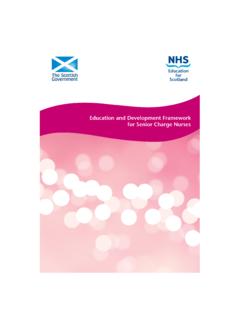
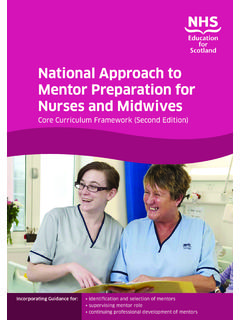
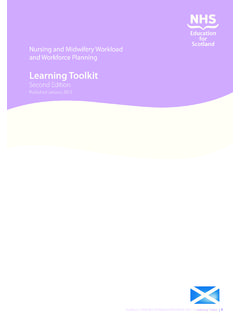
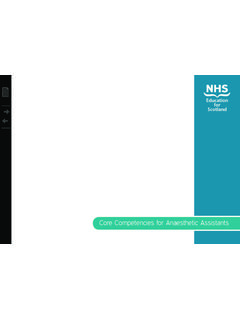
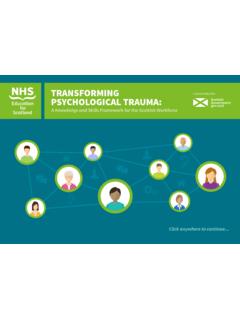
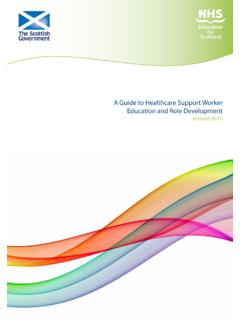

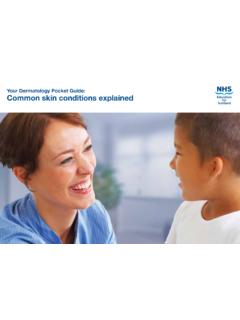

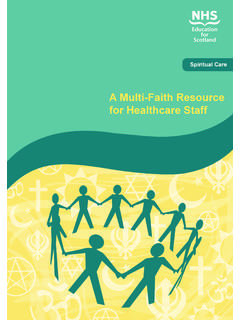

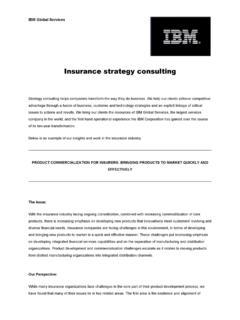

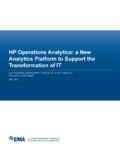


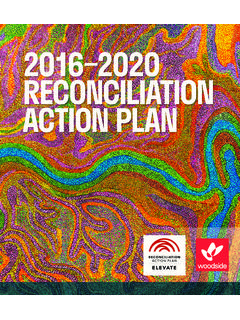
![Welcome [www.npcc.org]](/cache/preview/7/0/4/6/3/8/1/3/thumb-70463813e70cbd881cdccb4a4b4e1de9.jpg)